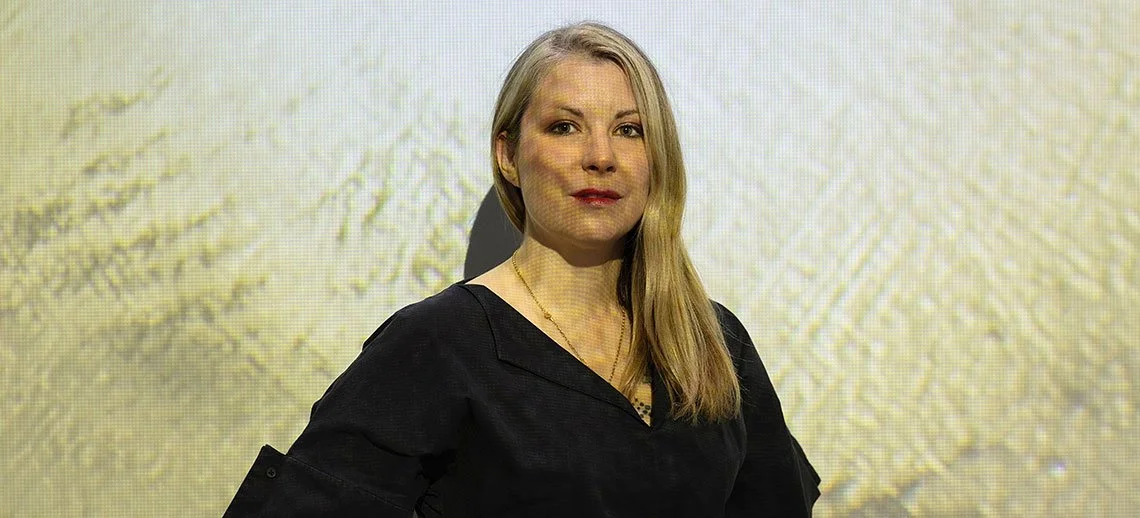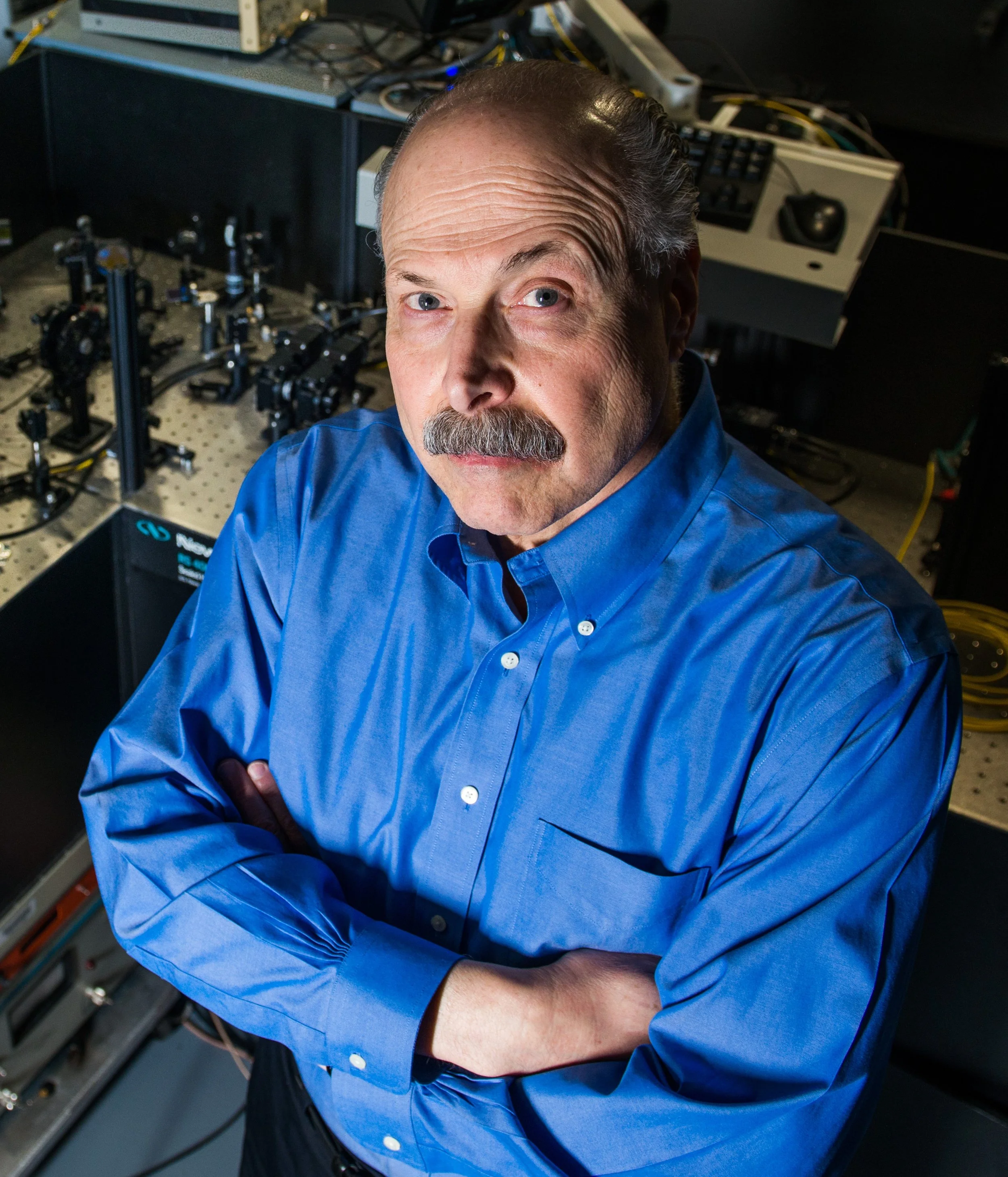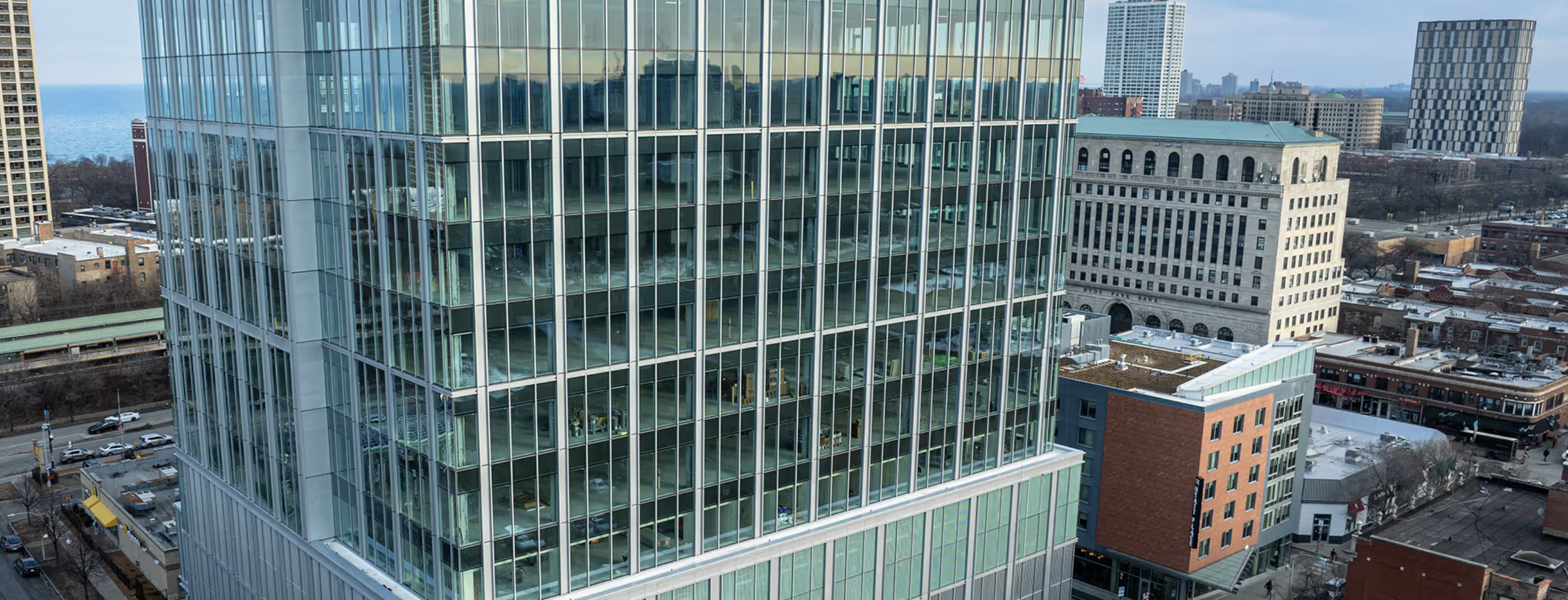Entangled Futures
Art + Interpretability in the Age of Quantum Computing
Wednesday, October 29
Hyde Park Labs, Chicago, IL
the
program
Set within the newly opened Hyde Park Labs, the program brings together artists, technologists, and institutional leaders to explore how meaning is made in an era defined by quantum systems and intelligent machines. Through keynotes, talks, and panels, the day examines how art and interpretation can serve as vital frameworks for understanding technological complexity.
From Libby Heaney’s exploration of quantum algorithms and quantum data as both medium and metaphor to insights from Portal Innovations and leaders from Chicago’s art and scientific institutions, the program unfolds as a dialogue across disciplines. The day concludes with closing reflections followed by a reception and digital art showcase that invite continued dialogue among artists, scientists, and innovators shaping the next cultural frontier.
Meet the speakers
From groundbreaking artists to quantum pioneers, TECHNĒ’s speakers are redefining how we think about creativity, technology, and the future of innovation.
-
Artist, Quantum PhysicistDr. Libby Heaney is a working class, award winning artist with a PhD and professional background in Quantum Science.
She is the first artist to work with quantum computing as a functioning artistic medium. Heaney’s practice explores the inherently non-binary and hybrid concepts and temporalities of quantum physics. She combines diverse media such as virtual reality, video games, and moving images with cutting-edge technologies like AI and quantum computing and traditional media such as watercolour, glass, and most recently, public sculpture. Together these media create a dream-like aesthetic, asking big philosophical questions about the nature of reality while remaining very human - intimate and embodied.
-
Dana Feitler Director, Smart Museum of Art
Dr. Vanja V. Malloy is an accomplished museum director, curator, scholar, and community builder and was appointed as the Dana Feitler Director of the Smart Museum of Art in 2022. She leads the University of Chicago’s fine arts museum, overseeing its strategic planning, exhibitions and programming, and student and faculty collaborations.
Malloy joined the Smart Museum from the Syracuse University Art Museum, where she was the Director and Chief Curator since 2019. Previously, she was the Curator of American Art at the Mead Art Museum at Amherst College and the Chester Dale Fellow at the Metropolitan Museum of Art in the Department of Modern and Contemporary Art. Throughout her professional experience, Malloy has curated numerous exhibitions and worked closely with contemporary artists on an array of projects. Malloy’s research examines the cross-disciplinary exchange of modern art, science, and technology in the early 20th century.
Malloy holds a Ph.D. in Art History from the Courtauld Institute of Art, University of London; a master’s degree in American Fine and Decorative Arts from Sotheby’s Institute of Art; and a bachelor’s degree from Duke University.
Photo credit: Katie Carmickle
-
Director of Design & Experience, Portal Innovations
Kevin Flavin is the Director of Design & Experience at Portal Innovations, where he supports the design and operation of Portal’s life science innovation hubs across the country. He works closely with architects, builders, and local teams to create spaces that reflect Portal’s mission—bringing together science, creativity, and community in environments where new ideas can grow.
With a background in operations and multimedia design, Kevin approaches each project with attention to both function and feeling—considering how people move through, connect within, and are inspired by their surroundings. Based in Chicago, he has helped guide the development of Portal’s sites in Atlanta, Chicago, Houston, and Boston, ensuring each location feels cohesive yet locally grounded.
-
David Awschalom is the Liew Family Professor and Director of the Chicago Quantum Institute in the Pritzker School for Molecular Engineering at the University of Chicago, a Senior Scientist at Argonne National Laboratory, and Director of the Chicago Quantum Exchange. He is also the inaugural director of Q-NEXT, one of the US Department of Energy National Quantum Information Science Research Centers.
Before arriving in Chicago, he was the Director of the California NanoSystems Institute and Professor of Physics, Electrical and Computer Engineering at the University of California – Santa Barbara. Earlier, he served as a Research Staff and Manager at the IBM Watson Research Center. He works in spintronics and quantum engineering, studying the properties of individual electrons, nuclei, and photons in semiconductors and molecules for quantum information processing.
Awschalom received the APS Oliver Buckley Prize and Julius Edgar Lilienfeld Prize, the EPS Europhysics Prize, the MRS David Turnbull Award and Outstanding Investigator Prize, the AAAS Newcomb Cleveland Prize, the International Magnetism Prize from the International Union of Pure and Applied Physics, and an IBM Outstanding Innovation Award. He is a member of the American Academy of Arts & Sciences, the National Academy of Science, the National Academy of Engineering, and the European Academy of Sciences. Dr. Awschalom recently received a US Secretary of Energy Achievement Award.
-
Quantum Technologist, Serial Founder, and CTO Moth Quantum
Spencer Topel is a serial founder and technologist with a deep background in quantum computing, robotics, and creative technologies. He is currently CTO of Moth Quantum, where he leads a team of world-class engineers building the first cloud-based consumer quantum applications for the creative industries.
Topel is also Co-founder of Electron Robotics, where he and his father Robert Toppel are deploying advanced adaptive manufacturing robots in food and electronics, applying AI-driven robotics to high-value industrial tasks. Previously, he founded Physical Synthesis, where he designed and launched groundbreaking products—including the world’s first acoustic synthesizer—while consulting across consumer technology and product design.
Topel’s transition into quantum began in 2019 during a residency at the Yale Quantum Institute, where his team built the world’s first quantum musical synthesizer using qubits. He has since expanded this work through collaborations with institutions such as Virginia Tech, applying quantum simulation to immersive sound environments.
Across ventures, Topel’s work bridges frontier technologies—quantum, AI, and robotics—with real-world applications, pioneering the next generation of tools for industry and creativity alike.
Hyde Park Labs
Where Science, Culture, and Innovation Converge
More than a building, Hyde Park Labs is an idea made concrete — a space built to embody transparency, collaboration, and the public life of science.
Situated in the heart of Chicago’s South Side innovation corridor, it was conceived as a place where research, entrepreneurship, and imagination coexist. Every design choice — from its glass-walled labs to its open terraces — reflects a belief that discovery should be seen, shared, and celebrated.
For TECHNĒ, Hyde Park Labs represents the architecture of interpretability: a living ecosystem where ideas move freely between disciplines, where technology becomes tangible, and where culture and computation meet face to face.
At TECHNĒ Chicago, we believe the future belongs to those who can connect art, science, and technology in ways that create meaning as well as innovation. Our team was founded on this principle: that interpretability is not just a concept, but a cultural responsibility.
With Chicago as our base, we are building a platform that brings visionaries together, sparks collaboration across disciplines, and shapes frameworks for a more interpretable future.
Join us in being a part of the dialogue shaping how humanity understands, builds, and imagines the world to come.













